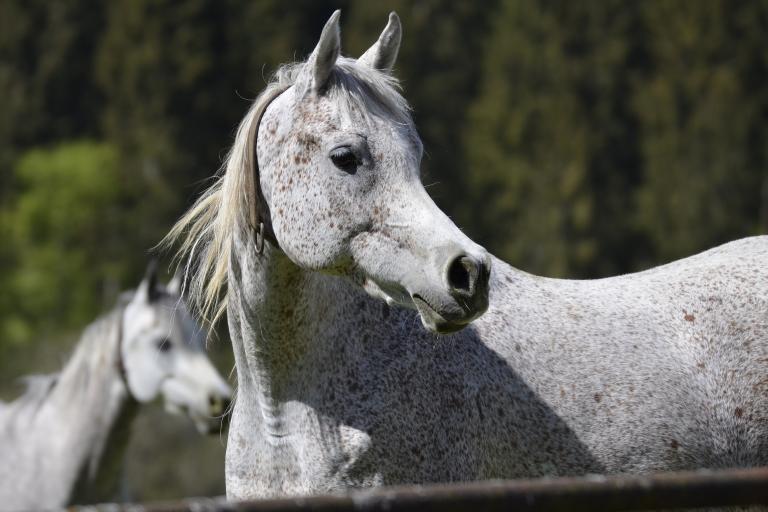Severe Combined Immunodeficiency Disease (SCID Horse)
Severe Combined Immunodeficiency Disease (SCID) causes an inactive immune system, leading to fatal infections and early death.
The disease occurs in Arabians and related breeds. The inheritance is autosomal recessive.
Symptoms
- Recurring severe infections
- Severe course of infections
General Information
- Severe Combined Immunodeficiency Disease (SCID) causes improper development of cells of the immune system (T- and B cells) resulting in severe, non-specific infections → usually lethal.
- Foals appear healthy at birth, but usually die of infection within the first 6 months.
Test Information
This test detects the deletion of 5 basepairs (c.9478_9482del) in the DNAPK gene.
Genotype and Lab Report
Inheritance: autosomal recessive
→ Only horses with two copies of the variant (scid/scid) are affected. Horses with only one copy of the variant (N/scid) are clinically healthy carriers.
Genotypes:
N/N = normal
The horse has no copies of the genetic variant causative for SCID and therefore cannot pass it on to its offspring.
N/scid = a carrier
The horse is clinically healthy. The genetic variant will be passed on to the offspring with a probability of 50%.
scid/scid = affected
If the horse lives long enough to reproduce, the variant will be passed on to all offspring. All offspring will be carriers (N/scid).
Recommendations
- Carriers may be bred to normal animals (N/scid x N/N) without any risk of producing affected offspring. The offspring should also be tested before breeding to determine if they are carriers or normal.
- Breeding two carriers (N/scid x N/scid) is not recommended due to the possibility of 25% of the offspring being affected.
- Affected animals (scid/scid) should not be used for breeding.
Literature
Shin, E.K., Perryman, L.E., Meek, K.: A kinase-negative mutation of DNA-PK(CS) in equine SCID results in defective coding and signal joint formation. J Immunol 158:3565-9, 1997. Pubmed reference: 9103416.
Further information is available at Online Mendelian Inheritance in Animals.

